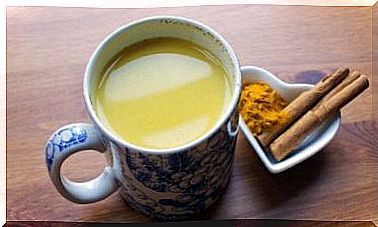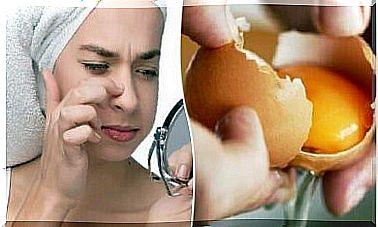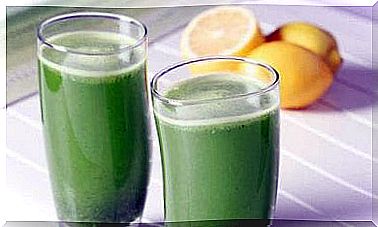All About Peptides And How They Benefit The Skin

Today there is an overwhelming number of new products and technologies for aesthetic or cosmetic purposes. These include peptides for the skin.
Peptides are short amino acid chains. They are important for the skin as they are the building blocks of collagen and elastin. Although the body naturally produces peptides, collagen production decreases by 1% per year after age 30.
This is why the skin loses its smoothness and appears wrinkled, flabby and less shiny. That is why peptides are included in many care products.
Given that there are many trends and components that claim to be “miracle cures” for regaining youth, we have to wonder if peptides are really that effective. We will answer this question below.
All About Peptides: Different Types

We should start by noting that there are different types of peptides, each of which has different functions and effects on the skin. Here are the main ones:
Cell Penetrating Peptides (CPPs)
These can cross the cell membrane. They provide minerals (such as calcium, manganese and iron) that can increase collagen levels.
Enzyme Inhibitor Peptides
This type of peptide, as the name implies, inhibits enzymes. Think, for example, of angiotensin, which is mainly found in the vascular system. On the other hand, they help stop the breakdown process of the skin’s natural collagen.
Signal or Traqnsit Peptides
Signal peptides are the first to appear in the polypeptide chain synthesis and indicate the destination of proteins. Once their ‘message’ is applied to the skin, they help promote collagen and elastin production.
Neuropeptides
Neurotransmitter peptides are chemicals composed of amino acids. They are secreted by nerve endings and affect the activity of various organs.
This blocks certain chemicals, the release of which causes muscle contraction. So, in terms of aesthetic effects, they smooth out wrinkles and fine lines.
Tetrapeptides and Hexapeptides
Depending on the length of the peptide chain, there are tetrapeptides, pentapeptides and hexapeptides. They all have different functions and effects.
Tetrapeptides and pentapeptides act on sensitive areas (such as bags under the eyes) and are firming agents. Pentapeptides in turn stimulate tissue repair, contribute to healing and strengthen and stimulate collagen synthesis.
Hexapeptides also help to relax the muscles by acting on dynamic wrinkles. They have a similar effect to Botox, without the needles or the side effects of using this substance.
Other Peptides
Peptide Q10 promotes the synthesis of coenzyme Q10. Experts have studied its effects on athletic performance. They also consider it an antioxidant that slows down premature aging and neutralizes free radicals.
Finally, there are also copper peptides. Experts are still studying its properties (Spanish link), as they estimate that it could prevent the oxidative activity of this metal on cells. However, the aesthetic effects have yet to be proven.
All About Peptides: The Skin Benefits
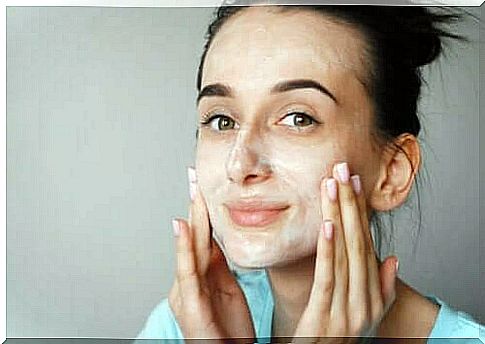
Peptides have many functions in the body. They are the building blocks of enzymes and hormones and are also sources of energy.
It is important to remember that peptides ‘tell’ cells to produce more collagen when it is broken down to replace what has been lost.
Therefore, the main function of peptides is to aid in the production, protection and replacement of collagen. We could say that the other benefits are derived or a consequence of this.
Peptides in particular benefit the skin in several ways:
- Hydration. Decreased collagen levels lead to dehydration. Because peptides increase the production of this substance, they reverse or reduce the effects of moisture loss from the skin.
- Softness. elasticity and firmness of the skin. The direct result of the restoration of collagen and moisture is the visible softness, elasticity and firmness of the skin. Remember that peptides also form elastin fibers.
- Reduction of wrinkles and expression lines. Increased collagen translates into smoothness and a youthful appearance. This is because wrinkles and expression lines are less visible when the skin is firmer and smoother.
- skin barrier. Peptides are the first line of defense against infection. An increased production of collagen makes the skin stronger and more resistant.
How exactly do they work?
Peptides are amino acid chains and amino acids are the building blocks of proteins throughout the body.
When you use products and treatments that contain them, they penetrate the skin and send a message to the cells of the body telling them to produce more collagen. In a way, it’s like fooling your body. But in this case the end justifies the means.
In addition to the use of cosmetic products, there are other ways to stimulate the production of collagen. Some foods are rich in this substance, such as gelatin, salmon, peppers and tomatoes.
What to look for in a skin care product with peptides
In general, they are beneficial for the skin. However, not all are created equal. We have already explained above that some transmit signals to stimulate collagen production, while others inhibit enzyme production. Nevertheless, most species act as water collectors.
You can also combine peptides with other ingredients. By binding to certain skin receptors, different peptides can produce many effects. For example, think of:
- Anti-aging.
- Hydration.
- Anti-oxidation.
- Firmness or elasticity.
- Tissue repair.
- Brightening the skin.
- Reduction of acne.
When choosing a peptide-based skin care product, keep the following in mind:
- Make sure it does indeed contain peptides. However, keep in mind that it can sometimes exist under a different name (such as palmitoyl – English link).
- Choose the most suitable product presentation. For example, creams are more effective because they stay in contact with the skin for longer. This means that the skin can absorb the peptides more.
- No product contains everything, so you should base your choice on your needs. It is important to note that tetrapeptides increase elasticity and firmness, while hexapeptides help with radiance or appearance of the skin.
- Finally, check out the other ingredients. Some peptides work better in combination with other elements. For example, vitamin C and niacinamide. So it’s great if a skin care product with peptides contains them.
Contraindications and Things to Keep in Mind
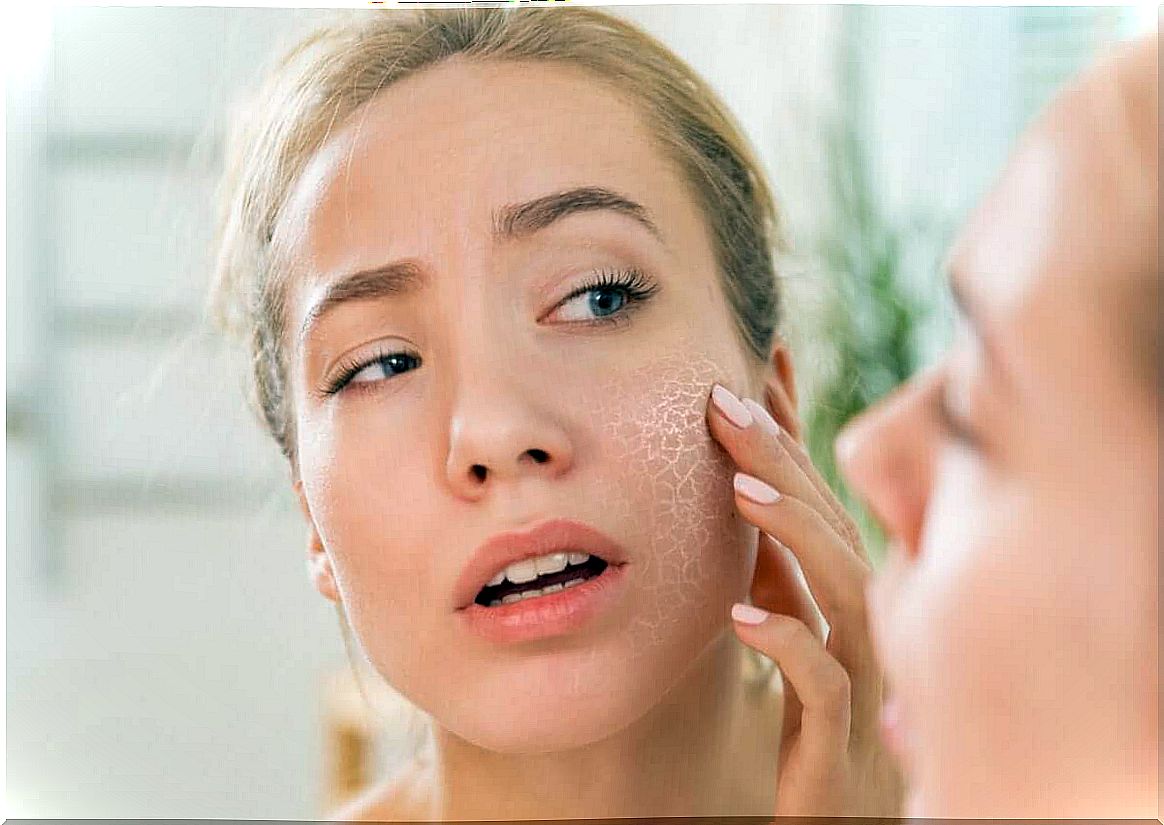
Yes, these fabrics may seem miraculous, but there is always a downside. For starters , the word “peptide” can be used generically to refer to any short amino acid chain.
There are many different types, and not all of them have effects on the skin. So it is possible that the term is used as a label for marketing purposes, even if the product does not contain an ingredient that can regenerate the skin.
Research is being done on this. Some peptides have already been analyzed, although only in clinical trials in controlled groups.
In other words, small samples or under laboratory conditions (in vitro). Although peptides can be beneficial for the skin, there is still a long scientific way to go to make some resounding claims.
The good news is that no adverse reactions have been observed. They are not toxic and they only have a few side effects. Very rare cases of allergy have been reported. The only drawback is that they are often expensive.
Are Peptides a Youth Booster?
Like many other products, they are advertised as the ultimate anti-aging treatment. You can find them in creams, masks and other products from large chains or in web shops.
Yes, peptides can help, but they are not a panacea. It takes a combination of several factors, from diet and exercise to adequate hydration and stress reduction. All this to prevent or delay aging. You should also remember that peptides are already present in your body.
You can apply them in moderation, up to twice a day. Also make sure you choose the right product that will absorb your skin in a better way. Meanwhile, medical researchers are still studying the skin rejuvenation effectiveness of peptides.



